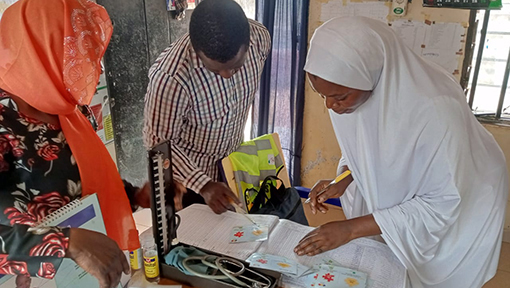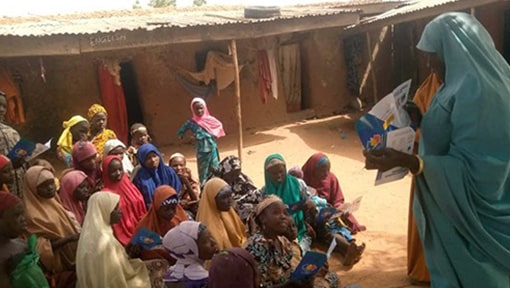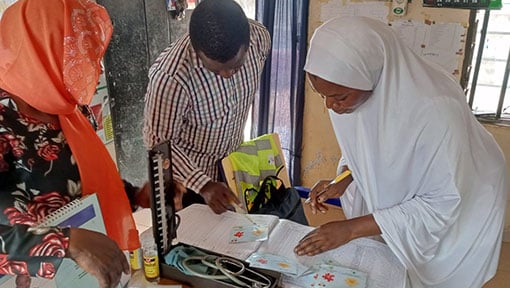If It’s Thursday, It Must Be Family Planning Day in Uttar Pradesh’s Saharanpur
Contributors: Suritesh Dagur, Nitin Dwivedi, Parul Saxena and Deepti Mathur

The Saharanpur urban primary health center team.
When The Challenge Initiative for Healthy Cities (TCIHC) kicked off in Saharanpur – a city in Uttar Pradesh, India – in August 2017, many government stakeholders thought a family planning program would fail. One even said, “We cannot change the mindset of the community.”
The TCIHC team thought otherwise and suggested that the fixed-day static (FDS) services approach might be an effective option to improve access to family planning in the city’s urban primary health centers (UPHCs). UPHCs had mainly focused on immunization and routine health services because they lacked trained family planning providers and certain supplies and equipment, they were unable to provide quality family planning services.
“When we first heard of FDS at UPHCs, we were puzzled because for us FDS was only for sterilization services. But that day, we learned that FDS is all about pooling resources at one place on a particular day to serve clients with quality and assured services as per their choice,” recalls the Urban Health Coordinator of Saharanpur.
In October 2017, TCIHC began planning for the initiation of FDS services at six UPHCs in Sarahanpur. The UPHC staff nurses received training on how to insert IUDs, and simultaneous efforts were made to ensure a consistent supply of products. Between January and February 2018, TCIHC leveraged funds to purchase the necessary instruments and equipment for IUD insertion for the UPHCs in Saharanpur.
In addition to improving the supply of family planning services, TCIHC also recognized the importance of generating demand. People living in Saharanpur, which is located in an agricultural belt, tend to desire large families. TCIHC coached and mentored Accredited Social Health Activists (ASHAs) to educate community members about the benefits of family planning and where to obtain services. TCIHC also created a WhatsApp group for ASHAs and auxiliary nurse midwives (ANMs), which they used to send reminder messages about upcoming FDS services ahead of each event. Finally, charts and posters were displayed in every UPHC with FDS information.
In February 2018, TCIHC facilitated FDS services in three UPHCs in Saharanpur. For the first time, city government officials saw that family planning services could indeed be successfully provided at UPHCs and specifically that FDS generated results. The TCIHC team subsequently advocated to city officials to designate a common day for FDS in all the UPHCs in the city to maintain uniformity and regularity. After seeing the family planning indicators moving in the right direction for once, the chief medical officer issued a letter to UPHCs and private accredited facilities to designate every Thursday for FDS. From that point on, in every government forum, workshop and meeting, Thursday became known as Family Planning Day.
As a result, there have been steady increases in family planning use in Saharanpur, especially in the number of women choosing the IUD. In 17 TCIHC-supported UPHCs, 2,274 IUD insertions were performed from January to June 2018 – almost 80% more than the previous year. These results have encouraged the family planning Nodal Officer to declare Thursday as Family Planning Day in rural areas as well.
“Family planning was the last thing on anyone’s mind at our UPHC. However, after observing and participating in the special FDS drive in 2018 facilitated by TCIHC, I saw people coming in for family planning services,” said the Urban Health Coordinator of Saharanpur. “From that day onwards, we regularly conduct FDS. And from August 2018 onwards, we are conducting FDS without the support of the TCIHC team.”






